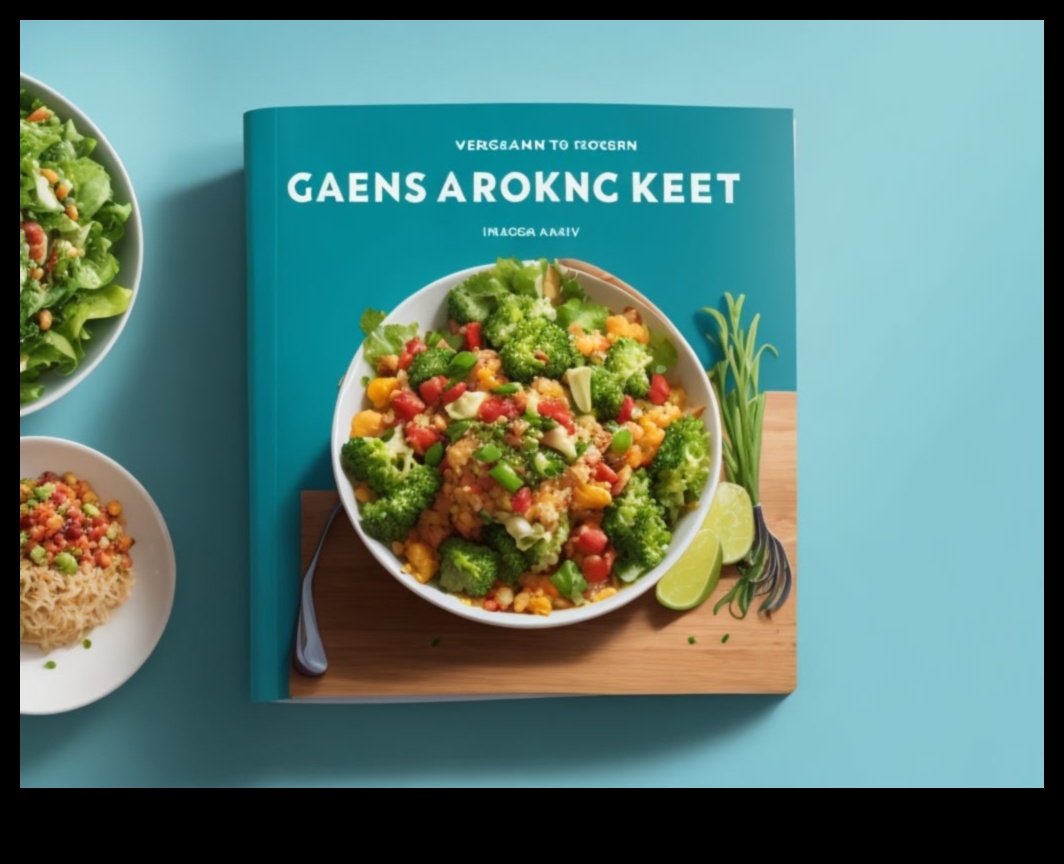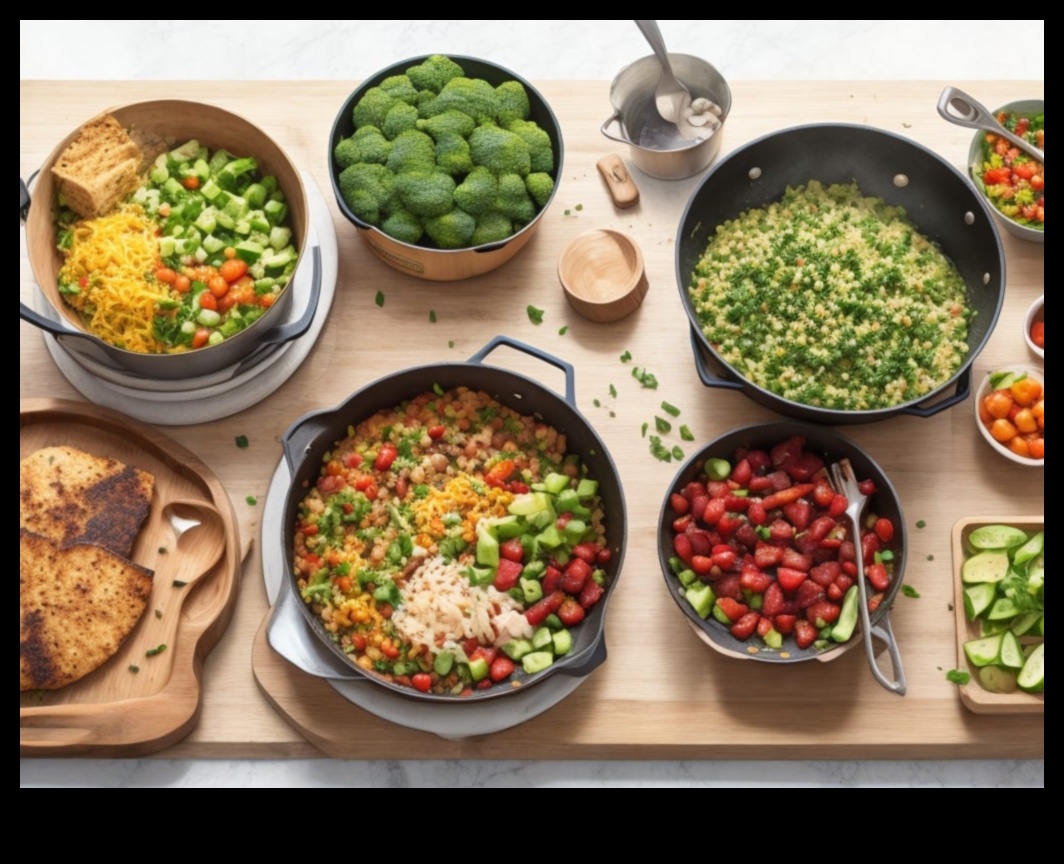
Veggie Delights: Elevate Your Plate with Plant-Based Joy
- Benefits of plant-based diets
- Types of plant-based diets
- Plant-based recipes for beginners
- Plant-based recipes for vegans
- Plant-based recipes for vegetarians
- Plant-based recipes for meat-eaters
- Plant-based recipes for kids
- Plant-based recipes for the holidays
- Frequently Asked
* plant-based diet
* vegetarian recipes
* healthy eating
* vegan recipes
* whole foods
The SEO search intent of the keyword “Veggie Delights: Elevate Your Plate with Plant-Based Joy” is informational. This is because the keyword is asking for information about plant-based diets and how to make them more enjoyable. Additionally, the keyword contains the word “delight,” which suggests that the searcher is looking for something that is both healthy and enjoyable.
| Feature | Description |
|---|---|
| Plant-based diet | A diet that is based on plants, such as fruits, vegetables, whole grains, and legumes. |
| Vegetarian recipes | Recipes that do not include meat or fish. |
| Healthy eating | A diet that is based on whole foods, such as fruits, vegetables, whole grains, and legumes. |
| Vegan recipes | Recipes that do not include any animal products, such as meat, fish, dairy, or eggs. |
| Whole foods | Foods that are unprocessed and unrefined, such as fruits, vegetables, whole grains, and legumes. |

II. Benefits of plant-based diets
Plant-based diets have been shown to have a number of benefits for both physical and mental health. Some of the benefits of a plant-based diet include:
- Reduced risk of heart disease
- Reduced risk of stroke
- Reduced risk of type 2 diabetes
- Reduced risk of some types of cancer
- Improved blood pressure
- Improved cholesterol levels
- Improved blood sugar levels
- Increased energy levels
- Improved mood
- Weight loss
In addition to these physical benefits, a plant-based diet can also have a number of mental health benefits. Some of the mental health benefits of a plant-based diet include:
- Reduced stress
- Improved mood
- Increased energy levels
- Improved sleep
- Reduced anxiety
- Reduced depression
Overall, a plant-based diet can offer a number of benefits for both physical and mental health. If you are considering making a change to your diet, it is important to speak with your doctor to see if a plant-based diet is right for you.
Types of plant-based diets
There are many different types of plant-based diets, each with its own set of benefits and challenges. Some of the most common types of plant-based diets include:
-
Veganism: A vegan diet excludes all animal products, including meat, dairy, eggs, and honey.
-
Vegetarianism: A vegetarian diet excludes meat, but may include dairy and eggs.
-
Lacto-ovo vegetarianism: A lacto-ovo vegetarian diet excludes meat and fish, but includes dairy and eggs.
-
Flexitarianism: A flexitarian diet is a semi-vegetarian diet that includes meatless meals on a regular basis, but may occasionally include meat.
Each type of plant-based diet has its own set of benefits and challenges. For example, a vegan diet is typically lower in saturated fat and cholesterol than a diet that includes meat, but it may be more difficult to find vegan-friendly options when eating out. A vegetarian diet may be a good option for people who want to reduce their meat consumption but are not ready to give it up entirely. A lacto-ovo vegetarian diet is a good option for people who want to get the benefits of a plant-based diet without giving up dairy or eggs. And a flexitarian diet is a good option for people who want to incorporate more plant-based meals into their diet without making a major change.
Ultimately, the best type of plant-based diet for you is the one that you can stick to and that makes you feel good. If you’re not sure which type of plant-based diet is right for you, talk to your doctor or a registered dietitian.
IV. Plant-based recipes for beginners
Plant-based diets can be a great way to improve your health and well-being. However, if you’re new to eating plant-based, it can be difficult to know where to start. Here are a few simple and delicious plant-based recipes for beginners:
-
Easy Vegan Chili: This chili is hearty, flavorful, and perfect for a cold winter day.
-
Tofu Scramble: This scramble is a great way to use up leftover tofu.
-
Vegan Pad Thai: This pad thai is a flavorful and satisfying dish that is perfect for a weeknight meal.
-
Vegan Burrito Bowls: These burrito bowls are a great way to get a variety of vegetables in your diet.
-
Vegan Pizza: This pizza is a great way to enjoy your favorite comfort food without the meat or dairy.
For more plant-based recipes, check out our collection of plant-based recipes.
V. Plant-based recipes for vegans
Veganism is a diet that excludes all animal products, including meat, dairy, eggs, and honey. There are many reasons why people choose to adopt a vegan lifestyle, including ethical concerns about the treatment of animals, environmental concerns about the impact of animal agriculture on the planet, and health concerns about the consumption of animal products.
If you’re new to veganism, or if you’re just looking for some new and exciting vegan recipes to try, here are a few of my favorites:
- Vegan chilli sin carne
- Vegan shakshuka
- Vegan butternut squash mac and cheese
- Vegan lasagna
- Vegan pad thai
These are just a few of the many delicious and satisfying vegan recipes that are available. With a little creativity, you can easily create a vegan diet that is both healthy and enjoyable.
VI. Plant-based recipes for vegetariansVegetarian diets are based on plant foods, including fruits, vegetables, grains, nuts, and seeds. Vegetarians do not eat meat, poultry, or fish. There are many different types of vegetarian diets, including:
- Lacto-ovo vegetarians eat dairy products and eggs, but not meat, poultry, or fish.
- Ovo-vegetarians eat eggs, but not dairy products, meat, poultry, or fish.
- Vegans eat no animal products at all, including dairy products, eggs, meat, poultry, or fish.
Plant-based diets are becoming increasingly popular, as more people are looking for ways to eat healthier and more sustainably. Vegetarian diets can be a great way to get the nutrients you need, while also reducing your environmental impact.
Here are some tips for creating delicious and satisfying vegetarian meals:
- Vary your protein sources. There are many different plant-based proteins available, such as beans, lentils, tofu, tempeh, and seitan.
- Include plenty of fruits, vegetables, and whole grains. These foods are packed with vitamins, minerals, and fiber.
- Use herbs and spices to add flavor to your meals.
- Don’t be afraid to experiment! There are endless possibilities when it comes to vegetarian cooking.
Here are some simple and delicious vegetarian recipes to try:
- Vegetarian chili
- Lentil soup
- Tofu scramble
- Vegan lasagna
- Vegetarian pizza
For more vegetarian recipes, visit the following websites:
With a little creativity and effort, you can easily create delicious and satisfying vegetarian meals that the whole family will enjoy.
VII. Plant-based recipes for meat-eaters
If you’re a meat-eater who is looking to incorporate more plant-based foods into your diet, there are plenty of delicious and satisfying recipes out there that you’re sure to enjoy. Here are a few of our favorites:
These recipes are all packed with flavor and nutrients, and they’re sure to satisfy even the most ardent meat-eaters. So what are you waiting for? Give them a try today!
Plant-based recipes for kids
Plant-based diets can be a great way to get your kids to eat healthy, but it can be challenging to find recipes that they will actually enjoy. Here are a few tips for creating plant-based recipes that your kids will love:
- Make sure the recipes are kid-friendly. This means using ingredients that your kids are familiar with and that they enjoy the taste of.
- Keep the recipes simple. Kids don’t have the attention span for complicated recipes, so keep things simple and easy to follow.
- Make the recipes fun. Add some color and creativity to the dishes to make them more appealing to kids.
Here are a few specific examples of plant-based recipes that your kids might enjoy:
- Vegetable fritters. These fritters are made with grated vegetables, such as carrots, zucchini, and sweet potatoes. They are then coated in a batter and fried until golden brown.
- Baked tofu nuggets. Tofu nuggets are a great way to get your kids to eat tofu. They are made by dipping tofu cubes in a batter and then baking them until they are crispy on the outside and tender on the inside.
- Fruit smoothies. Smoothies are a great way to get your kids to eat their fruits and vegetables. Simply blend together your favorite fruits and vegetables with a little bit of milk or yogurt.
With a little creativity, you can easily create plant-based recipes that your kids will love. Just remember to keep things simple, fun, and kid-friendly.
IX. Plant-based recipes for the holidays
Here are some plant-based recipes that are perfect for the holidays:
These recipes are all delicious and festive, and they’re sure to please everyone at your holiday table.
Most Asked Questions
Q: What is a plant-based diet?
A: A plant-based diet is a diet that emphasizes eating whole, plant-based foods. This means that the majority of your calories come from fruits, vegetables, whole grains, and legumes. Plant-based diets can be healthy and nutritious, and they can also be a great way to reduce your risk of chronic diseases like heart disease, cancer, and diabetes.
Q: What are the benefits of a plant-based diet?
A: There are many benefits to eating a plant-based diet, including:
- Reduced risk of chronic diseases
- Improved heart health
- Lowered blood pressure
- Improved cholesterol levels
- Increased energy levels
- Weight loss
- Better skin
- Reduced inflammation
Q: What are some challenges to eating a plant-based diet?
A: There are a few challenges to eating a plant-based diet, including:
- Finding time to cook plant-based meals
- Dealing with social pressure to eat meat
- Finding plant-based alternatives to meat and dairy products
However, these challenges can be overcome with a little planning and effort. There are many resources available to help you make the transition to a plant-based diet, such as cookbooks, websites, and support groups.